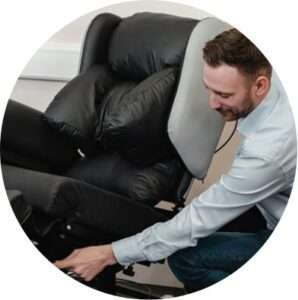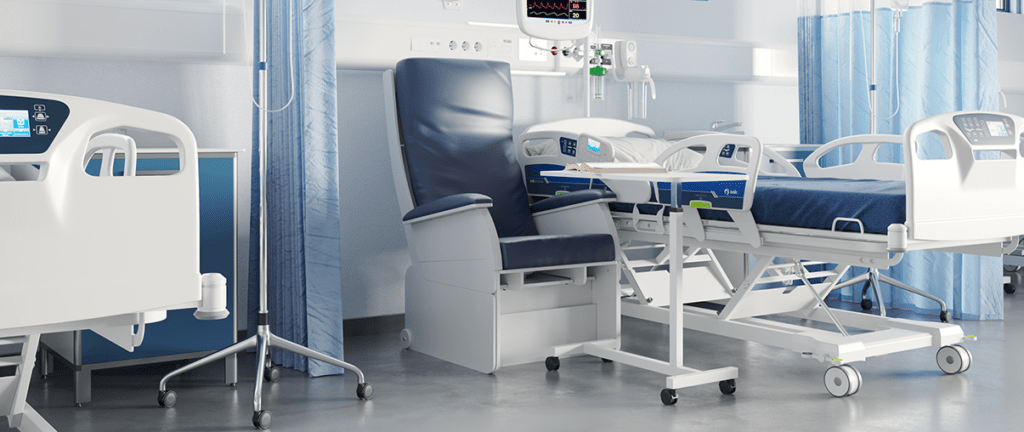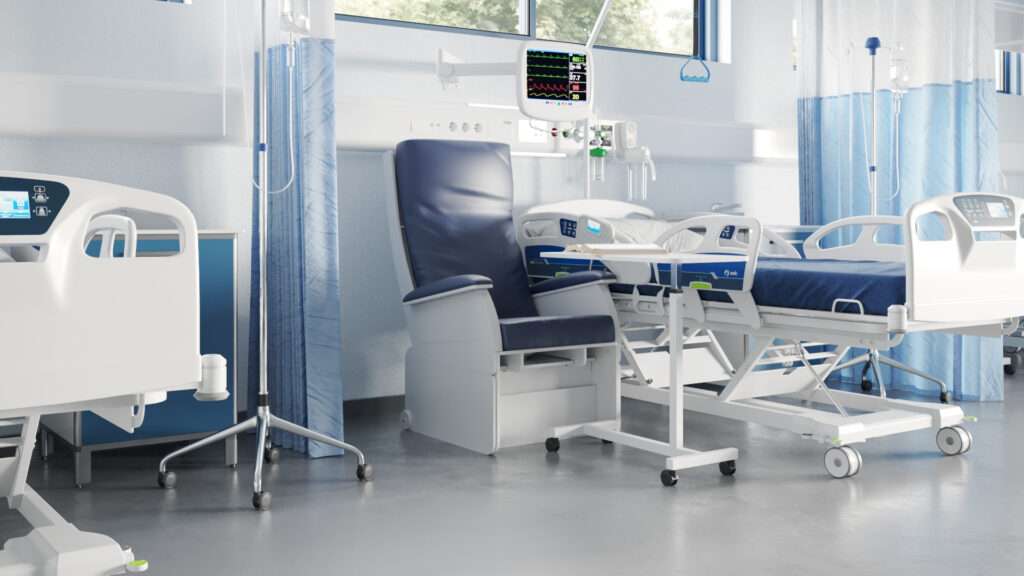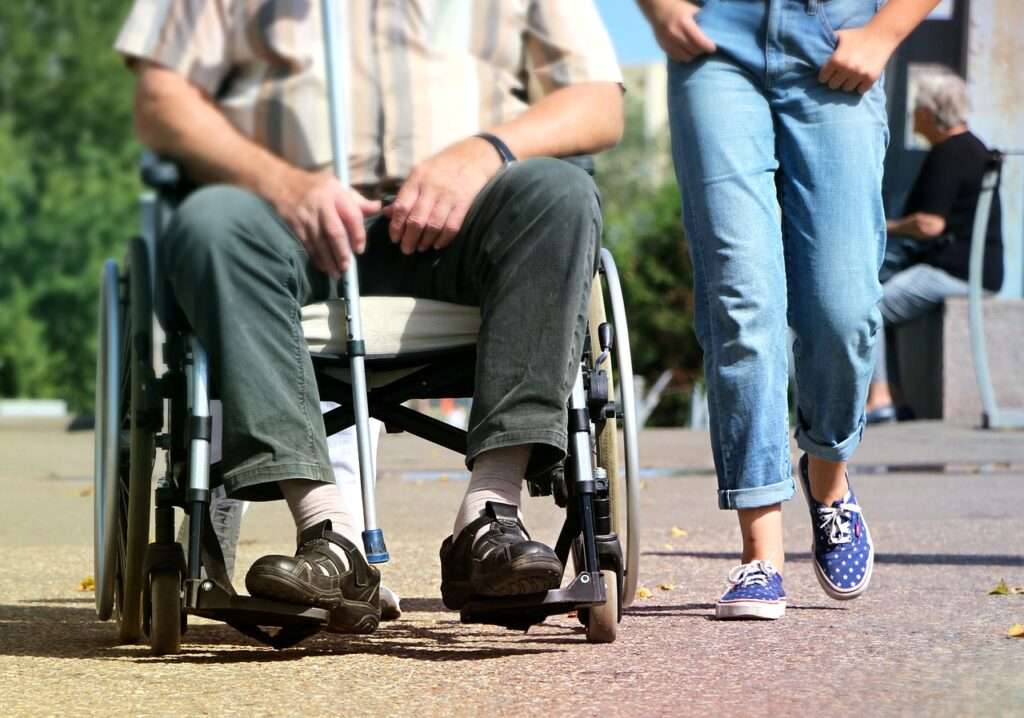It is estimated that there are around 7 million carers in the UK – thought to be made up of 6.5 million adults and a further 500,000 young carers. That’s more than 1 in 10 people across the UK providing unpaid care for a friend or relative on a regular basis.
Despite the huge number of people who will become a carer at some point in their lifetime, there still isn’t widespread awareness of the support available to carers.
Supporting a loved one can be expensive, tiring and lonely. But there is now a wide range of support for carers available if you know where to look.
We’ve put together this guide to three key areas of support that UK carers can access.
Jump straight to…
Social support for carers
Caring for someone is often isolating. Not only is the carer spending much of their time supporting their friend, sibling, parent or partner, but it can be difficult to turn to other friends who have never been a carer and can’t fully relate to your experiences.
This is why there is a range of support groups and online forums just for carers. They help to connect people who understand the responsibilities of being a carer, and the effect they can have on you.
Many of these groups are open to all carers. Here are some examples of well-known, reputable groups which you can join across the UK.
- Carers UK — The goal of this charity is to make life better for carers. They provide support groups nationwide as well as an online forum.
- Carers First — This charity emphasises the fact that carers need to remember to put themselves first sometimes. They provide support groups across the East and South of England and have an online forum open to all.
- Carers Trust — This organisation provides a wealth of resources online, they can also help you to find a local support group in your area.
But there are also more specialised support groups, designed for specific groups of carers who are more likely to have had similar experiences. Being able to speak to someone who’s circumstances are like yours can be extremely helpful for emotional support.
Support for young carers
A young carer is anyone under the age of 18 who is caring for a family member or friend. There are lots of support groups just for young carers.
Many young carers have never met another young person who is responsible for the care of a loved one. These support groups give young carers a chance to socialise with other people their own age. It’s an opportunity to relax, share experiences and have time to be a teenager.
- The Children’s Society — This organisation runs many services to support young carers across the UK. You can also live chat with their support team from 10am to 4pm, Monday to Friday if you need advice or just someone to talk to.
- KIDS — This charity is known for supporting children with disabilities. But they also offer support for young carers. They run clubs and activities throughout the year that give young carers the opportunity to meet up and socialise.
Support for carers looking after someone with Dementia
Caring for someone with Dementia comes with unique challenges that are often very stressful and upsetting for the caregiver. As the symptoms of Dementia progress, the person may become anxious, scared and unable to remember conversations or events. This can make looking after them difficult, as they might not understand that you are just trying to help them.
If you are struggling with caring for a loved one with Dementia, then attending a support group with other carers looking after someone with Dementia can help. You can offer advice to one another, discuss your challenges with someone in a similar position, or just unwind for a few hours.
- Dementia Talking Point — This is the online community ran by the Alzheimer’s Society. It provides a safe space online where carers looking after someone with Dementia can talk to each other.
- Dementia Connect — This directory allows you to search for a local support group in your area. You can meet up with other carers nearby to socialise and offer each other support.
We have mainly looked at nationwide support groups and online forums, but there are also local support groups all across the country. Carers UK provide an excellent local directory to help you look up support groups near you.
In the 2019 State of Caring Survey, 81% of carers asked reported feeling lonely or isolated due to their caring role. This highlights the importance of seeking out social support to help maintain your own health and wellbeing whilst caring for someone else.
Financial support for carers
Having access to social support can improve the mental and physical health of carers. However, the financial pressures of being a caregiver can also be a major source of stress.
In fact, isolation and financial strain often come hand in hand. Looking again at the State of Caring Survey, many carers listed money as a factor that was limiting their social life.
Finances are a particularly big concern for people who quit their paid jobs to become a full-time carer. Instead of being able to fully focus on looking after their loved one, they are worrying about paying the bills or not having enough savings to cover an emergency.
There are various support services in place to help ease this financial strain.
Carer’s Allowance
Carer’s Allowance is available to most people who are aged 16 or over, aren’t in fulltime education and provide 35 hours or more per week caring for a disabled person.
The Citizens Advice website provides more details on checking eligibility and how to apply. If you’re eligible, you could receive £66.15 a week to cover some of your caregiver costs.
Unfortunately, Carer’s Allowance often doesn’t cover all costs that come with being a carer. If you live with the person you care for and are struggling to cover the household costs, you may be able to access further financial support.
Covering household costs
Here are some of the benefits you may be able to claim:
- Fuel Allowance — If the person you care for was born on or before 5 November 1953, you could receive between £100 – £300 to help cover the cost of heating over Winter. Fuel Allowance does not affect any other benefits you may receive.
- Carer’s Assessment – You can request a carer’s assessment from your local council. Once they have carried out the assessment, you may be eligible for a personal budget to assist you in your caregiving role.
- Council Tax Reductions — If the person you care for is classed as ‘severely mentally impaired’ then you may be entitled to a discount on Council Tax. You will need to speak to a doctor to understand whether this applies in your case.If you are caring for someone other than your spouse, partner or child for more than 35 hours a week, you may also be able to claim a discount. You can also apply for discounted council tax in this situation if the child you are caring for is over the age of 18.
- TV License Discount — If the person you care for is blind or has a severe sight impairment, you may be able to claim a 50% discount on TV license fees.
Whilst these benefits can help to ease some of the everyday costs, they do not help directly if you have an emergency and need immediate or substantial financial support. For these cases, there are sometimes grants available from charities and local authorities.
Charities and Grants
There are over 185,000 registered charities in the UK. Some focus on research and raising awareness, but many exist to provide direct support to people who need it.
Carers can approach charities and request funding for things like new household goods, days out with the person they care for, and even healthcare equipment. Most charities have grants available and will be more than happy to help where they can.
If you are looking for financial support to purchase specialised care equipment, please contact us. The Vivid Care team have a huge list of charities that we can share with you. We will always be happy to help you get started with finding charitable funding.
Equipment for carers
Before you start looking for charitable funding, it can be helpful to work out what kind of equipment will really help you in your caregiving role.
If the person you care for has reduced mobility or is prone to falls, it can be tiring helping to lift and move them on a regular basis. Incorrect lifting techniques are also an injury risk for you and the person you care for.
There are lots of mobility aids and lifting equipment available that can make moving and handling safer, easier for you and more comfortable for the person you care for. Here are some of our top recommendations for care equipment that can support you as a carer:
1) Hoists
A hoist makes it much easier for you to help the person you care for to get around the house. You can position them safely in a sling and then move them using the lifting arm.
If you regularly transfer someone from their bed to a chair, a wheelchair, the bath or vice versa. Then getting a hoist can really help to reduce the strain. You won’t have to physically lift them anymore which will reduce your risk of injury.
You can get mobile hoists that you can move around the house as needed. Many of them even fold down so you can store them away when you don’t need it.
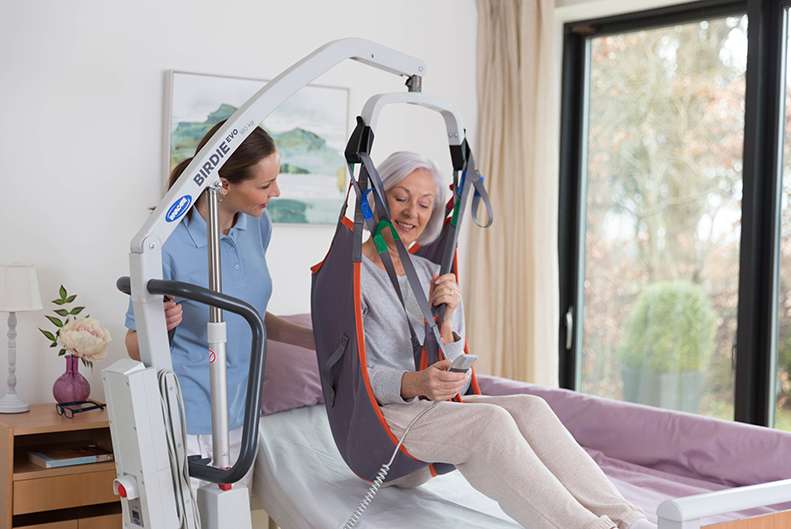
The Birdie Evo Mobile Hoist is a great option for carers who need support with transfers.
If the person you care for has some mobility but just needs a bit of help getting to their feet when they are sat down, then you could go for a Stand Assist lifter rather than a full hoist. It’s designed for that exact purpose!
2) Specialist Seating
Rise and Recline Chairs
Riser and recliner chairs are designed to look like a traditional armchair, with extra care features built-in. They recline to elevate the user’s legs to improve circulation. They can also reduce back pain and offer better postural support than a standard armchair.
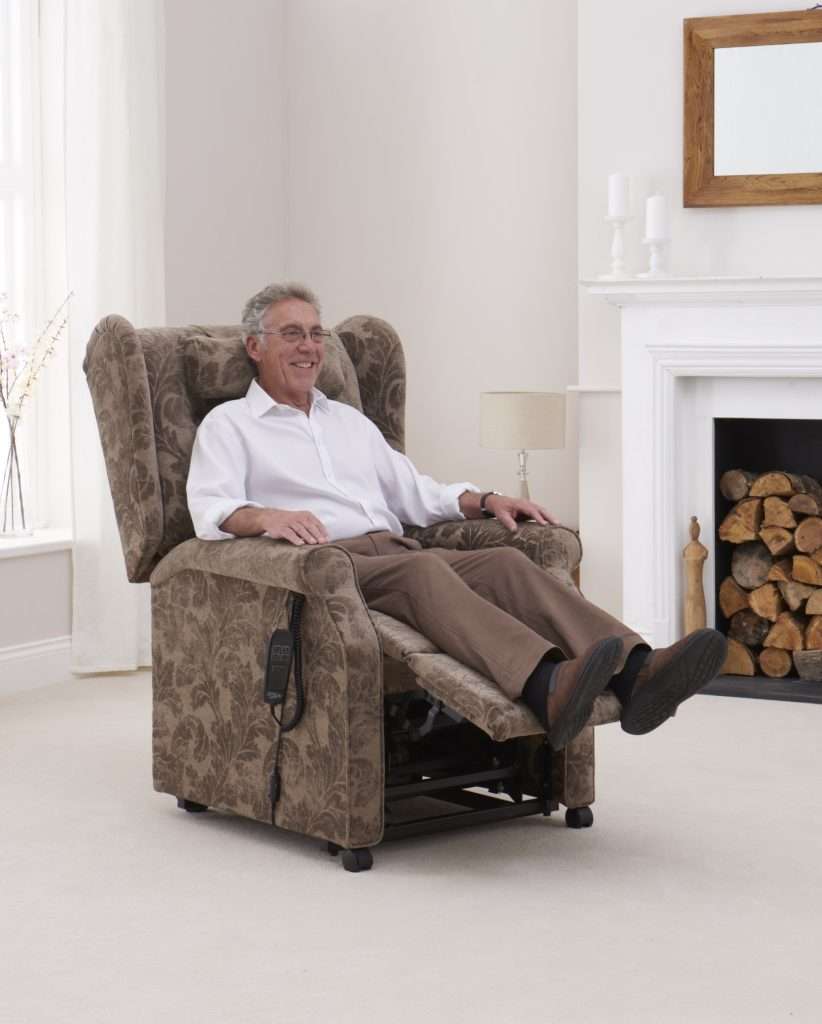
The Copgrove Rise and Recline Chair is one of our most popular models. It offers top of the range support and comfort.
If you regularly help the person you care for to stand up, then a riser recliner chair can help you with that too. They can rise fully to support someone into a standing position, without you having to lift them.
Care Chairs
A care chair is a specialist chair designed for people with high-dependency needs. They provide higher levels of support than riser recliners; their dimensions are fitted exactly to the user’s body size.
They are an ideal piece of care equipment if the person you look after struggles with standing transfers; is at high risk of pressure sores; or needs specialist postural support and positioning options due to a condition like Scoliosis or Motor Neuron Disease.
All care chairs have wheels, which makes it easier for you to move someone around the house. You don’t have to transfer them into a wheelchair to go from the living room to the kitchen. They can stay in their custom chair which gives the support and comfort they need.
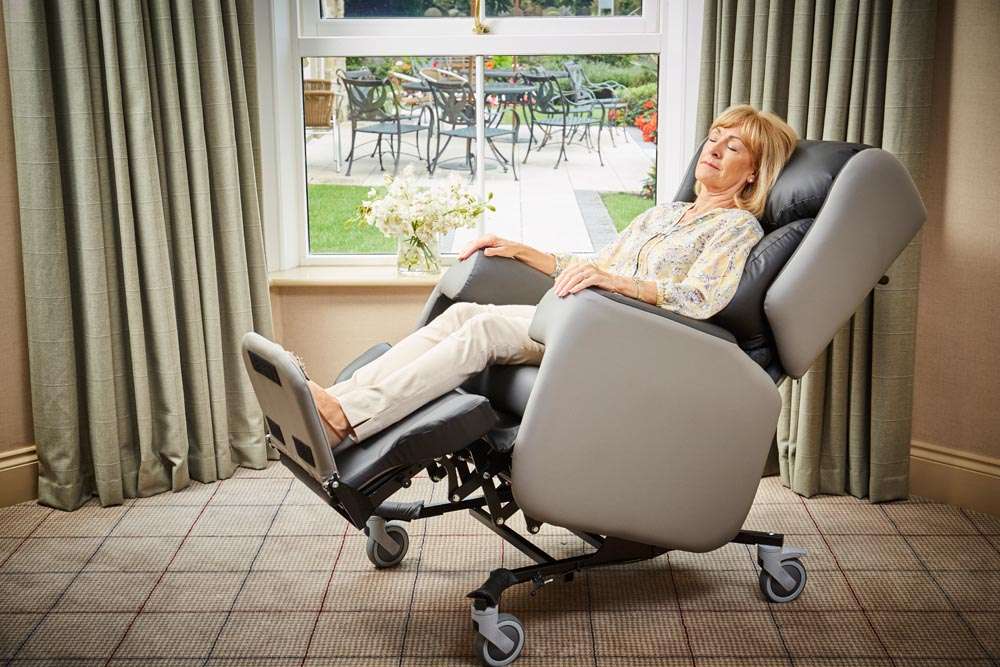
Lento Care Chair is easy to move, supportive and comfortable. The user can sit for a longer period of time, which means carers don’t have to make as many transfers.
Payment Options
As we said in the financial support section, we can help you reach out to charities if you’re looking for funding for this equipment. This could be a great option if you’re concerned about paying for equipment all in one go. Get in touch for more information!
Summary
There are millions of carers across the UK. Many of them don’t always know where to turn for support. This guide covers three main areas of support for carers — social and emotional support, financial support, and equipment to support you in a caregiving role. Each of these types of support offers different benefits to carers. By accessing all forms of support whenever you need to, you can start to reduce the stress, loneliness, and tiredness that can come with being a carer.
If you are interested in any of the equipment mentioned above, get in touch by ringing 01423 799960 – we will be happy to help you!



